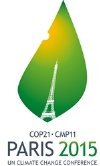Published on Mon, 2016-02-01 11:46
The Least Developed Countries (LDCs) are truly the battleground on which the United Nation's Sustainable Development Goals (SDGs) will be won or lost, and the rural areas in the LDCs are the front-line of the battle, the Secretary-General of the United Nations Conference on Trade and Development (UNCTAD) has said. In his statement at the sixty-second executive session of UNCTAD's Trade and Development Board (TDB) on Monday, the UNCTAD head, Dr Mukhisa Kituyi, said that this first executive session of 2016 comes at a paradoxical moment for the international community. |
Published on Tue, 2016-01-19 12:45
Owners, executives and managers of some prominent companies actively participated in the human rights violations committed against workers during Argentina’s 1976-1983 dictatorship, according to the report “Business responsibility in crimes against humanity: The repression of workers during state terrorism.” (available in Spanish) The report, laying out evidence of such violations, was recently released by Argentine human rights organization the Center for Legal and Social Studies (CELS, according to its acronym in Spanish), the Area of Economy and Technology of the Latin American Faculty of Social Sciences (FLACSO-Argentina), and the Truth and Justice Program and Human Rights Secretariat – both of which belong to the Argentine Ministry of Justice and Human Rights. |
Published on Wed, 2016-01-06 09:33
The Thai government announced, mid-2015, a policy on child support providing grants for poor families. A monthly allowance of 400 baht per child will be given to children born between 1 October 2015 and 30 September 2016. The Ministry of Social Development and Human Security anticipates that about 135,768 new-born babies will be covered once the program is completed. Civil society wants social security to be recognised as a right and warns that the complexities of poverty and inequality in a changing society need to be better understood. |
Published on Mon, 2015-12-21 10:24
The Paris Agreement, under the United Nations Framework Convention on Climate Change (UNFCCC), was finally adopted evening of Saturday, 12 December, after four years since the launch of the process to develop the legal instrument under the Ad hoc Working Group under the Durban Platform for Enhanced Action (ADP). The adoption of the Agreement was heralded as "historic" by President of the 21st meeting of the Conference of Parties (COP21) to the UNFCCC, French Foreign Minister Laurent Fabius, as well as several countries that spoke at the final plenary. |
Published on Wed, 2015-12-16 10:35
The Paris deal recognises the reality of the climate threat, but only takes us part of the way. Climate change is already destroying lives and livelihoods with more than 2.6 million people displaced by extreme weather events and changing seasons. This will only get worse. The Paris decisions acknowledge the challenges and move global action forward, but while the Summit conclusions refer to the target of a 1.5-degree limit, the capacity to leverage ambition on the scale required to stabilise the planet is still a question for the future. |
SUSCRIBE TO OUR NEWSLETTER







